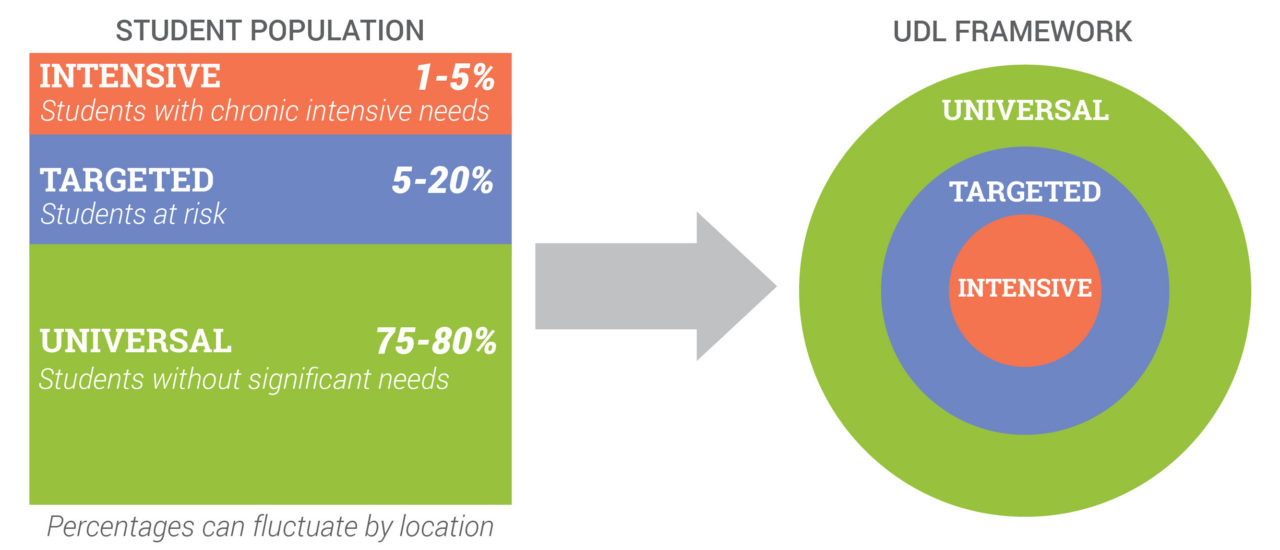In the North Vancouver School District we have organized our focus for development around the ‘Pillars of Educational Practice’ developmentally viewed through a Universal Designed for Learning lens.
Universal Design is a framework for designing classrooms and curricula that enables all individuals to gain knowledge, skills, and enthusiasm for learning. UDL is a way of thinking about the organization of supports and instruction for students.
- Universal practices/supports serve the majority of system-wide and/or school-based development issues (e.g., curriculum, instruction, assessment, behaviour support, etc.).
- Targeted practices/supports are focused individual or group strategies which build from and add to universal actions. The intent of targeted supports is to compound the effect of and align with quality universal practices (e.g., reading/writing interventions, etc.).
- Intensive practices/supports build from and add to universal and targeted supports. Typically, these supports are highly individualized and specialized (e.g., student or context specific). The intent of intensive supports is to compound the effect of and align with quality universal and targeted practices.

Universal Design is framework for looking at a Pillar of Educational Practice from a perspective of student diversity and practitioner skill/awareness. For example, in the Pillar of ‘Instruction’ does the practitioner have a sound knowledge and skill in ‘Universal’ instructional practices, more ‘Targeted’ practices for specific needs, and ‘Intensive’ strategies for students requiring significant focus?
When we consider priority areas for development, we target our focus based on if it is Universal, Targeted, or Intensive level of need. This enables a more discrete analysis and enhancement of practice.


